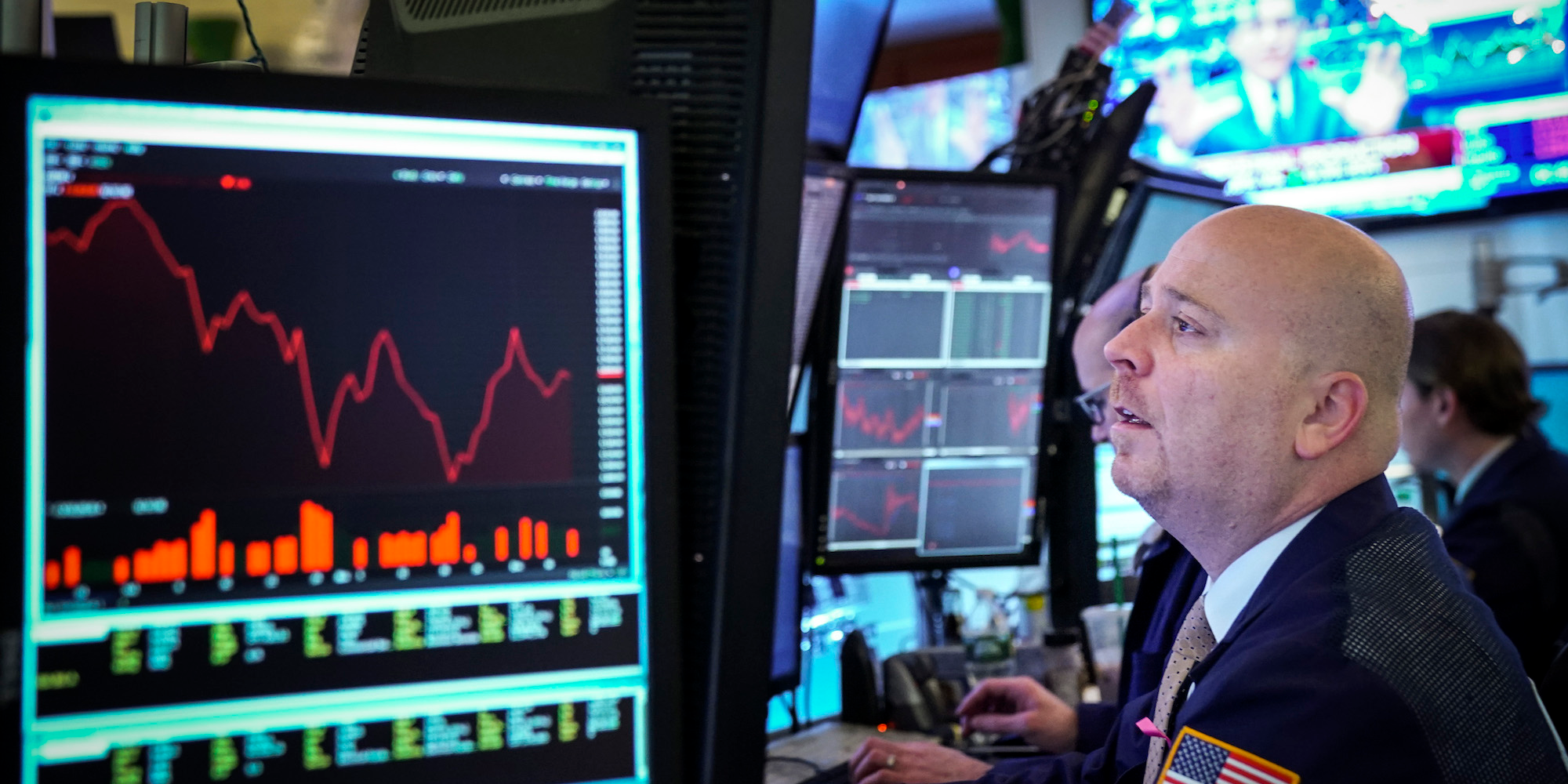- The Cboe Volatility Index (VIX), widely known as the market’s fear gauge, spiked to 67 on Thursday.
- It’s the highest reading from the gauge since the 2008 financial crisis.
- The VIX jump came amid a wild morning in stocks, where a major rout hit a circuit breaker and halted trading for 15 minutes.
- Watch the VIX live on Markets Insider.
- Read more on Business Insider.
Amid a morning of wild trading, Wall Street’s fear gauge has spiked to levels last seen in 2008.
The Cboe Volatility Index (VIX) spiked to 67 on Thursday, its most elevated level since the height of the financial crisis.
The index uses S&P 500 options to weigh traders’ expectations for volatility in the upcoming 30-day period. It’s thought of as the market’s favorite measure of broad volatility, and generally spikes during selling or buying frenzies.
Thursday delivered such a rout, as US stocks tanked at the open of trading in New York, putting all three major indices in bear market territory. The fall was so sharp that it triggered a circuit breaker on the New York Stock Exchange and Nasdaq, halting trading for 15 minutes.
When trading resumed mid-morning, stocks fell further, showing that investors continued to sell amid panic that the coronavirus outbreak will hinder global growth. Safe-haven assets such as long-term US Treasury bonds rallied, weighing on yields.
Volatility could continue in the near term as investor confidence wanes. "Yes, there will be economic disruption and an all-but-certain recession," Greg McBride, chief financial analyst at Bankrate told Business Insider in an email. As economic distress continues, markets will "undoubtedly overshoot to the downside," making it important for investors to maintain long-term perspectives.
"Markets will recover sooner, and much faster, than the overall economy and you cannot be sitting on the sidelines when that happens," he said.

